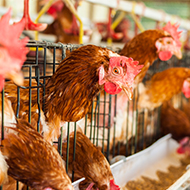RVC reveals factors to reduce racehorse injury
The data has been shared with the Equine Safety Group to inform future recommendations.
The Royal Veterinary College (RVC) has used new risk factor models to uncover the factors which could support the welfare of racehorses.
The Racing Risk Models (RRMs), developed in collaboration with the British Horseracing Authority, have supported researchers in better understanding how injuries and fatalities occur in jump racing.
To develop the RRMs, researchers analysed all the jump starts which were made on British racecourses in the past 14 years. The modelling information analysed data from nearly 400,000 horse performances.
This information included factors such as age, racing history, racecourse conditions and the trainer and jockey’s experience. This was then combined with racing-related fatalities from the same period.
One of the key findings from the data analysis was that falling during a race heightened the risk of fatality. The researchers say that, while this may not be surprising, the discovery gives good cause for the Equine Safety Group (ESG) to conduct further research into horse falls.
The development of the RRM for falls found that the risk of falls was lower when the starts involved padded-style hurdles. It is now recommended that all birch hurdles are replaced with padded hurdles by October 2026.
The research has also highlighted some health-related factors which are associated with fatality risk, which has prompted enhanced pre-race veterinary inspections for horses at greater risk of injury or fatality.
The ground condition of the racecourse was also flagged as a fatality risk. Further research is ongoing to understand the impact of weather factors and racecourse maintenance.
The research team’s findings have all been shared with the ESG, who will draw on the data to make evidence-based recommendations for the future of the sport.
Kristien Verheyen, professor of veterinary clinical epidemiology at RVC and the project lead, said: “We’re pleased to be working in collaboration with British racing to improve our understanding of the causes of negative outcomes in racehorses and enhance racehorse safety.
“This research will greatly help the industry in making scientifically backed decisions that will benefit the welfare of the sport’s equine participants, which must be the number one priority of all involved in racing.”
The full study can be found here.
Image © Shutterstock



 An Avian Influenza Prevention Zone (AIPZ) has been introduced across Wales.
An Avian Influenza Prevention Zone (AIPZ) has been introduced across Wales.